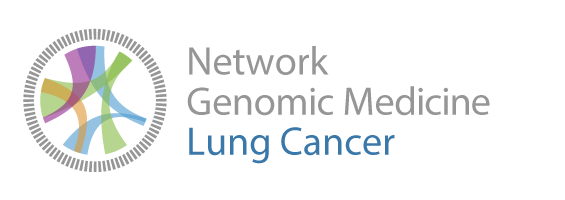Molecular pathological Diagnostics
A major challenge in view of the increasing knowledge about therapy-relevant molecular changes in lung cancer cells is the development of a high-quality molecular diagnostics, covering all these driver mutations quickly and accurately. At the Institute of Pathology at the University Hospital of Cologne a molecular diagnostic platform has been set up at the Network Genomic Medicine for this purpose covering all known driver mutations. This includes, among others, mutations in the genes EGFR, KRAS, BRAF, PIK3CA, HER2, p53, MET and DDR2, translocations in ALK, RET, ROS1 and amplifications in HER2, MET and FGFR1. The list of examined molecular changes will be updated regularly based on current research findings.

As part of the Network Genomic Medicine this diagnostics is provided to patients and cooperation partners regardless of residence or therapeutic location. By means of an integrated care contract reimbursement is guaranteed beyond the regular budget of treatment in a hospital or as an outpatient. The participation of an attending physician and the patient in the integrated care is a prerequisite for this. Ince 2012, as the first group in Europe, we have offered a comprehensive analysis with a multiplex test in combination with highly sensitive deep sequencing which also detects rare gene mutations in the smallest tissue samples reliably. For that, multiple techniques are used on routinely formalin-fixed and paraffin-embedded samples, such as Next Generation Sequencing (NGS), immunohistochemical detection of gene expression and fluorescence in situ hybridization (FISH).
Last update:
